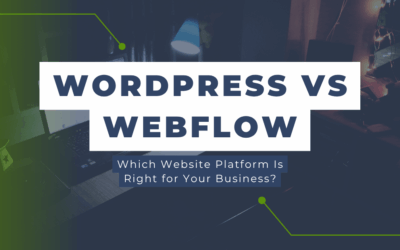Table of Contents
- Importance of Marketing Tools for Small Businesses
- Categories of Marketing Tools
- How to Choose the Right Tools for Your Business
- Benefits of Using the Right Marketing Tools
- Tips for Maximizing the Use of Marketing Tools
- Free vs. Paid Tools: Which Should You Choose?
- Frequently Asked Questions (FAQs)
The Best Marketing Tools for Small Businesses to Streamline Success
Importance of Marketing Tools for Small Businesses
For small businesses, marketing tools and marketing automation software are essential to save time and money while achieving growth. The right marketing tools for small business enable streamlined processes, increased customer engagement, and better ROI. From digital marketing platforms to CRM software, there’s a tool to fit every need. Statistics show that companies using marketing automation tools for small business can see a 14.5% increase in sales productivity and a 12.2% reduction in marketing overhead costs.
Categories of Marketing Tools
Social Media Marketing Tools
Social media is a cornerstone of digital marketing tools for small businesses. These platforms help maintain a consistent online presence, engage with audiences, and grow brand visibility. Below are some top tools to streamline your social media efforts:
- Hootsuite: A powerful platform for scheduling and managing posts across multiple social networks.
- Buffer: Excellent for scheduling posts, analyzing social performance, and engaging with followers.
- Meta Business Suite: A centralized dashboard for managing Facebook and Instagram, with insights to enhance small business marketing strategies.
- Manychat: A chatbot tool that automates customer interactions on platforms like Facebook Messenger and Instagram DMs.
Email Marketing Tools for Small Business
Email marketing remains one of the most effective online marketing tools for small business. These platforms enable automation, personalization, and analytics to improve lead nurturing and customer retention:
- Mailchimp: Offers a range of features including automation, analytics, and customizable templates.
- Constant Contact: Simplifies email marketing with user-friendly tools and detailed analytics.
- ActiveCampaign: Combines email marketing, CRM, and automation tools for comprehensive campaigns.
Content Creation Tools
Professional-quality content is crucial for marketing for small business. These tools help create stunning visuals, videos, and written content:
- Canva: A versatile tool for designing social media graphics, presentations, and more.
- Descript: Simplifies video editing and transcription, making content creation faster and easier.
- Loom: A video messaging tool that enhances communication with customers and teams.
- ChatGPT: AI text generation tool for creating engaging marketing copy and automating customer responses.
SEO and Analytics Tools
Data-driven decisions are critical for successful digital marketing platforms. These tools provide insights to optimize your website and improve search rankings:
- Google Analytics 4: Tracks website traffic, user behavior, and campaign performance.
- Google Tag Manager: Simplifies the implementation of tracking codes for more accurate analytics.
- Ahrefs: Offers comprehensive SEO tools to help small businesses improve search rankings.
Customer Relationship Management (CRM) Tools
Managing customer relationships is essential for small business growth. The following CRM tools improve customer retention and enhance marketing automation for small business:
- HubSpot CRM: Free and feature-rich, perfect for startups and growing businesses.
- Keap (Infusionsoft): Combines CRM, email marketing, and automation for streamlined workflows.
- HighLevel: A robust platform for automation, appointment setting, and customer follow-ups.
Advertising and Paid Media Tools
Paid media is a key part of marketing for small business. These tools help create, manage, and optimize ad campaigns for better ROI:
- Google Ads: Provides powerful tools for targeting the right audience and optimizing campaigns.
- Facebook Ads Manager: A must-have for running effective social media advertising campaigns.
- AdEspresso: Simplifies ad creation and A/B testing for small businesses.
Organization and Collaboration Tools
Efficient workflows and team communication are crucial for small business success. These tools keep teams organized and projects on track:
- Slack: A communication platform that streamlines team collaboration with channels and integrations.
- Zapier: Automates workflows by connecting various marketing tools and platforms.
- Airtable: Combines the functionality of spreadsheets and databases for project management.
- ClickUp: A comprehensive tool for managing tasks, projects, and team collaboration.
- Google Mail: A reliable email platform that integrates with other Google tools for seamless collaboration.
- Google Sheets: A cloud-based spreadsheet tool for tracking data, budgets, and more.
- Google Business Profile: Boosts local SEO and helps small businesses attract more customers through Google search and maps.
How to Choose the Right Tools for Your Business
With so many marketing software options available, selecting the right tools can feel overwhelming. Use this framework:
- Define Your Goals: Do you need better lead management, improved engagement, or efficient automation?
- Assess Your Budget: Balance free and paid options for maximum ROI.
- Evaluate Ease of Use: Choose user-friendly tools with excellent customer support.
- Check Integration: Ensure the tool integrates seamlessly with your existing software for small business.
Benefits of Using the Right Marketing Tools
Implementing the right marketing tools for small business offers measurable advantages:
- Increased Brand Visibility: Create eye-catching content with Canva and Descript.
- Higher Conversion Rates: Leverage email marketing automation tools like ActiveCampaign.
- Improved Customer Engagement: Tools like Manychat automate responses for better client interactions.
- Data-Driven Decisions: Use analytics platforms to optimize campaigns and grow your business.
Tips for Maximizing the Use of Marketing Tools
To fully utilize digital marketing platforms:
- Regularly Audit Tools: Assess each tool’s performance and replace ineffective options.
- Stay Updated: Train your team on new features to maximize potential.
- Combine Tools: Use Zapier to connect marketing software for seamless workflows.
Free vs. Paid Tools: Which Should You Choose?
Both free and paid online marketing tools for small business have their place:
- Free Tools: Ideal for startups or basic needs. Canva and Google Sheets are excellent examples.
- Paid Tools: Offer advanced features and scalability, like ActiveCampaign’s premium plans.
Upgrade when the benefits clearly outweigh the costs in terms of time, efficiency, and ROI.
Frequently Asked Questions (FAQs)
What are the best free marketing tools for small businesses?
Top free tools include Canva for design, Mailchimp for email marketing, and Google Analytics for performance tracking.
How do I know if a marketing tool is worth the investment?
Evaluate ROI, efficiency improvements, and customer reviews before committing to paid tools.
Are there digital marketing platforms tailored for specific industries?
Yes, tools like Shopify cater to eCommerce, while platforms like Restaurant365 are perfect for foodservice businesses.




